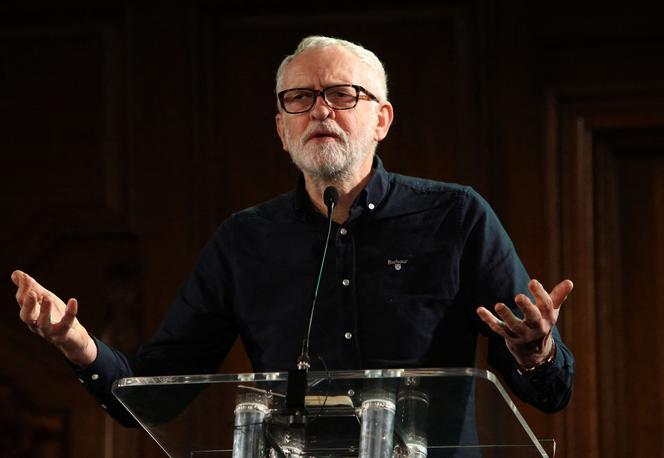


Former leftist Labour leader Jeremy Corbyn announced, on Thursday, July 24, that he was forming a new political party alongside another ex-member of Britain's ruling party, as UK politics continues to splinter. Corbyn, who lost two elections as Labour leader in 2017 and 2019, and fellow independent MP Zarah Sultana said the new left-wing outfit would be called Your Party. Sultana, an MP since 2019, was suspended by Labour last year after she and several other members of parliament voted to scrap a controversial cap on child benefits.
"It's time for a new kind of political party. One that is rooted in our communities, trade unions and social movements," they said in a joint statement. In their announcement, they called for a "mass redistribution of wealth and power" and said they would "keep demanding an end to all arms sales to Israel." They also committed to a "free and independent Palestine." Prime Minister Keir Starmer, who has pulled Labour to the centre since succeeding Corbyn as leader, faces growing calls within his party to recognise a Palestinian state.
Corbyn, 76, stepped down as Labour leader after overseeing its worst result in decades, when it was trounced in the 2019 general election by the Conservatives, then led by Boris Johnson.
Labour under Starmer suspended him in 2020 after he refused to fully accept the findings of a rights watchdog's probe into claims that anti-Semitism had become rampant within Labour's ranks under his leadership. The Equality and Human Rights Commission ruled the party had broken equality law when Corbyn was in charge.
Corbyn said the anti-Semitism had been "dramatically overstated for political reasons."
Last year, Corbyn announced he would stand as an independent in the July 2024 general election after Labour failed to put him forward as a candidate. He was expelled from the party, but still went on to comfortably win his Islington North seat in London, which he has represented for more than 40 years.
While it remains to be seen whether the new movement will take off, its formation appears to confirm a trend in British politics towards a multi-party system. British politics has long been dominated by Labour and the Conservatives, but three other parties are challenging that order.
The centre-left Liberal Democrats won 72 seats in the 650-seat parliament last July, while Nigel Farage's anti-immigrant Reform UK party won about 14% of the vote. It picked up five seats, an unprecedented breakthrough for a hard-right party in Britain.
The Eurosceptic Reform Party swept dozens of council and mayoral seats in local elections in May and is leading in national opinion polls, although the next general election is not expected until 2029.
While Reform are picking up support on the right, Labour is also losing votes to the Greens on the left. Starmer, a former chief state prosecutor who is seen as too right-wing for some left-wingers in his party, recently suspended four lawmakers who rebelled over his attempts at reforming welfare. They currently sit as independents, and Westminster watchers will be keeping a close eye on whether they are tempted to join Corbyn's new party.
